Autumn at Lake Racken, 1951
oil on board
signed Ture Ander
unframed 46 x 54.5 cm
framed 57 x 66 cm
Essay:
Ture Ander was a Swedish painter renowned for his participation in the artist community the Racken group. At the age of 13, Ander moved to Stockholm as a painter's apprentice, balancing his work with evening classes at the Technical School, which later became known as Konstfack, an eminent art, craft, and design college in Sweden.
In 1905, Ander was admitted to the Artists’ Association School where contemporaries like Leander Engström, Isaac Grünewald, and Einar Nerman also studied. His work was featured in the prominent exhibition "De Unga" in 1909. Furthering his studies in Paris at the Colarossi Academy between 1911 and 1912, Ander drew inspiration from Paul Cézanne, which significantly influenced his style.
Ander's personal life was closely intertwined with his art. He married Ragnhild Franzén, who was an apprentice to the Fjæstad sisters, and they eventually settled in Orrhöjda near Lake Racken. The family often experienced financial hardship, with Ragnhild gathering berries and mushrooms and Ture supplementing their income through hunting and fishing. The later years of Ture’s life were marked by sorrow after the prolonged illness and death of his wife, Ragnhild, which deeply impacted his artwork.
This painting "Höst vid Racken" (Autumn at Lake Racken) from 1951 is a testament to Ander's deep connection with the Racken area, which was a significant place for him and the rest of the Racken group—an artists' colony where he was one of the members.
Created towards the end of his career, this work captures the serene beauty of autumn by the lake. The painting showcases Ander's mature style with a rich palette of yellows and oranges, reflecting the seasonal foliage, and an atmospheric portrayal of the sky and water, conveying the melancholic yet peaceful essence of the season. This piece, with its lush brushwork and contemplative mood, not only illustrates the natural beauty of the Racken landscape but also serves as a poignant reflection of Ander's emotional state during his later years.



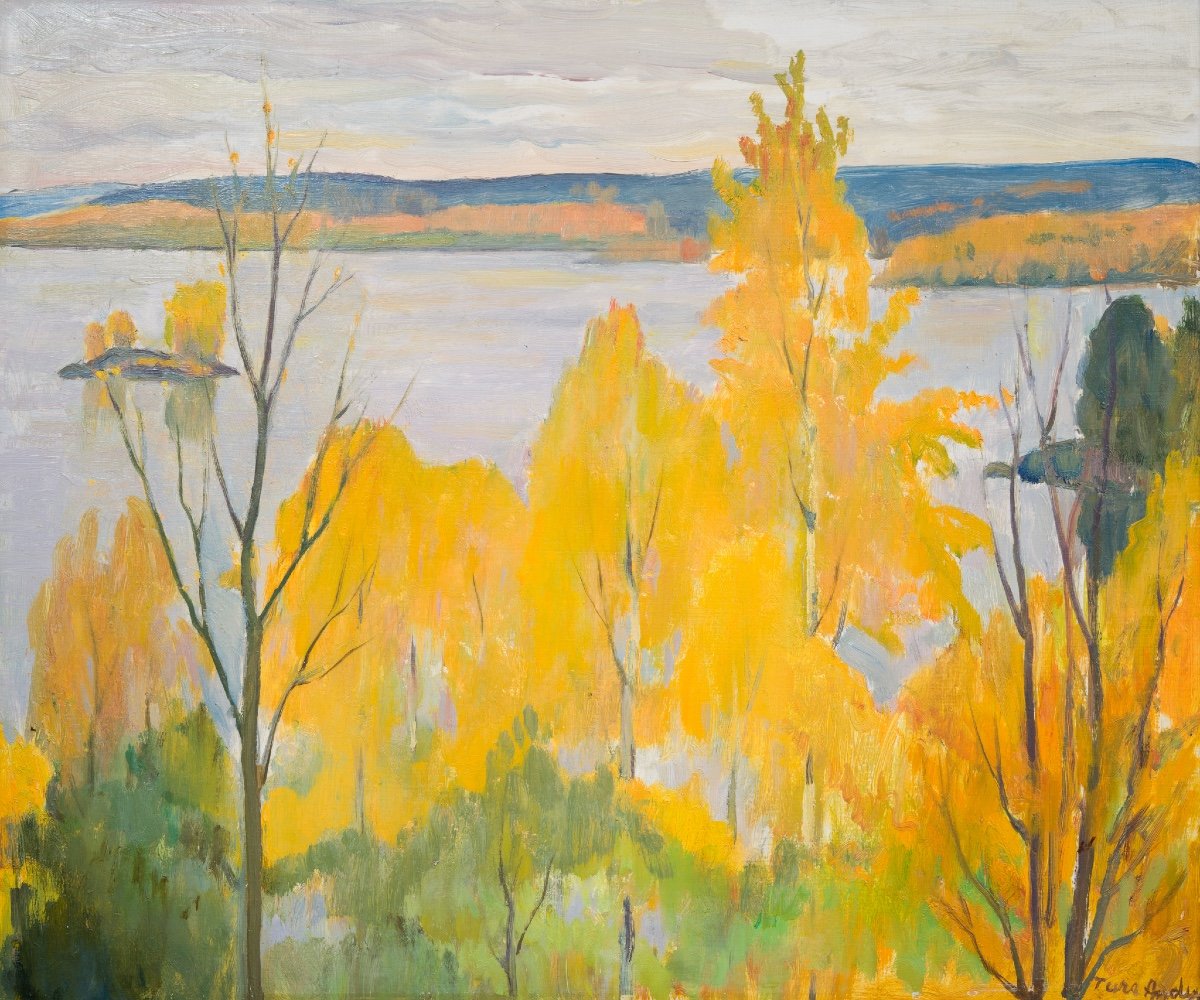
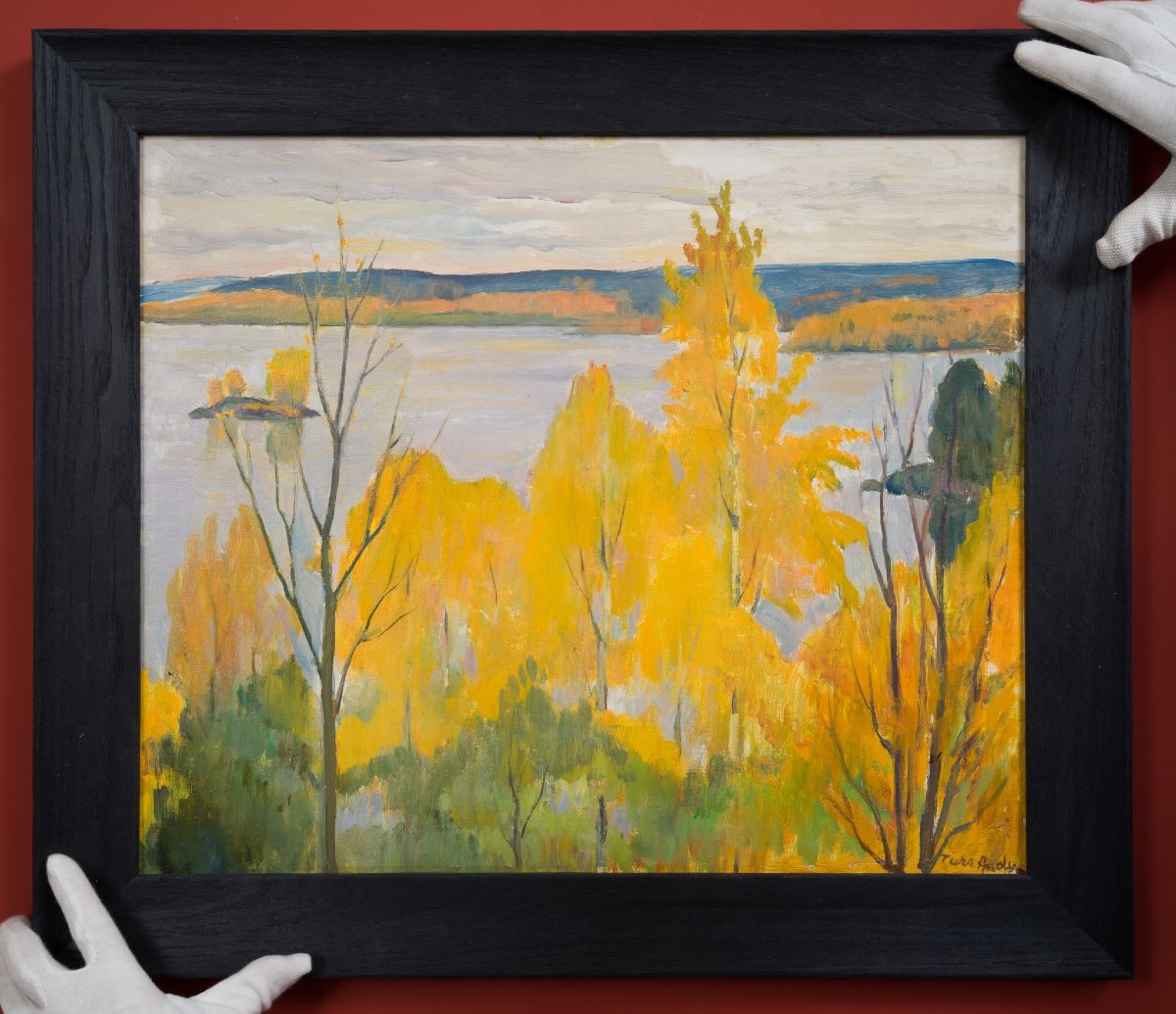
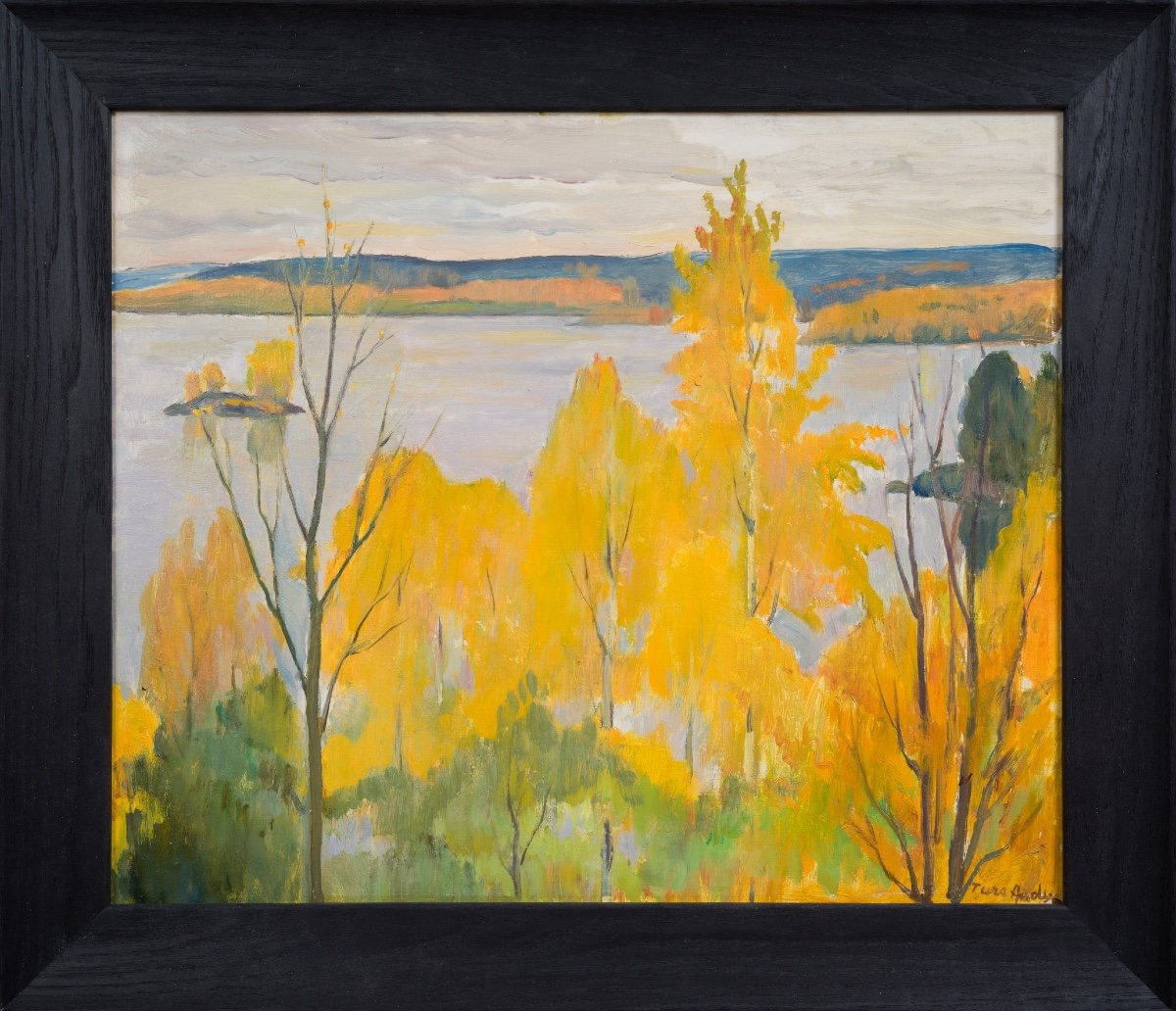
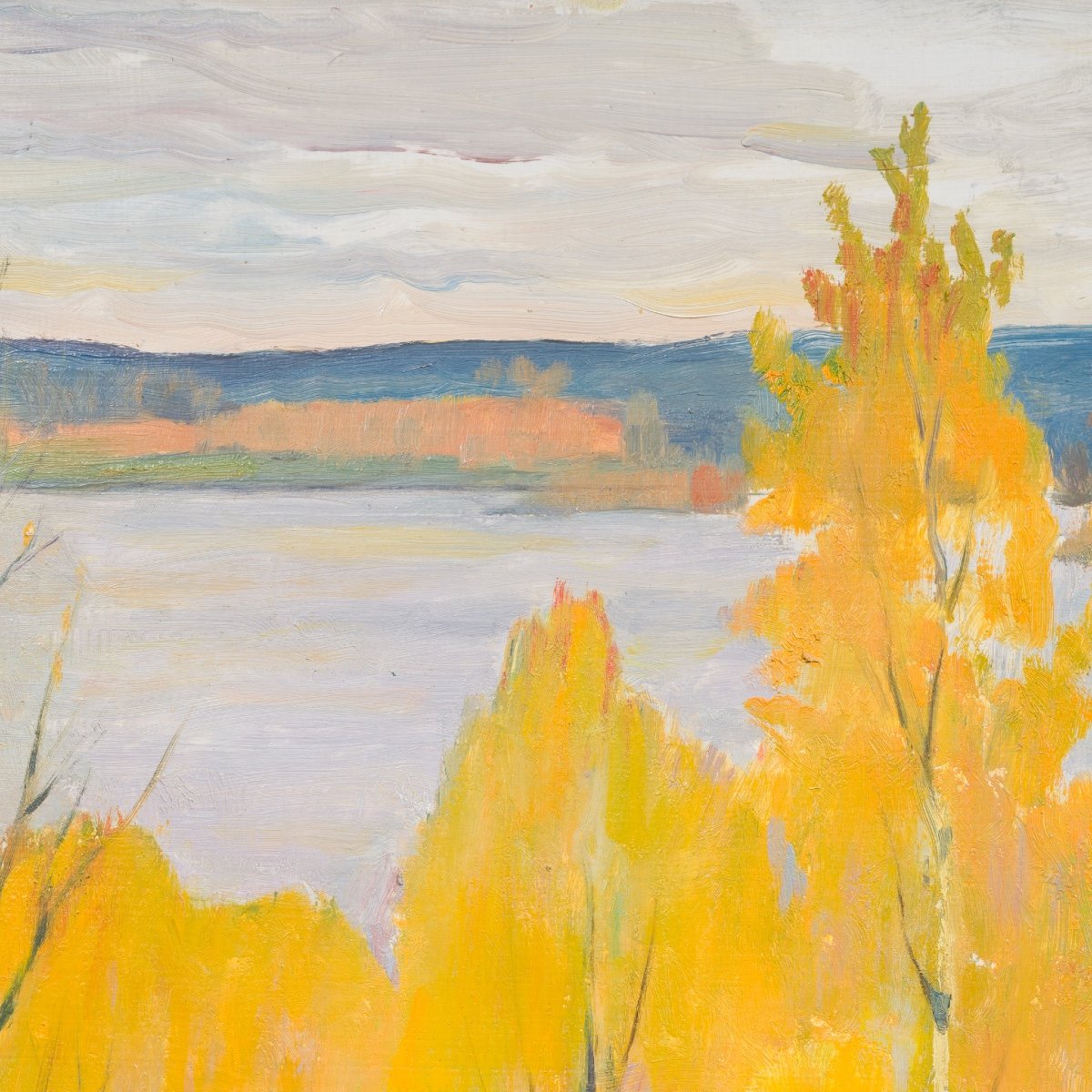
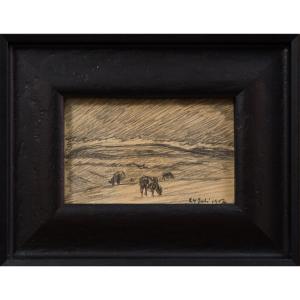

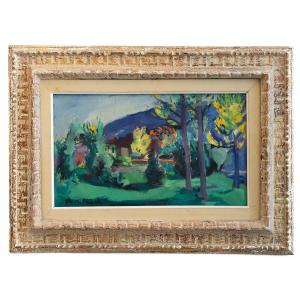
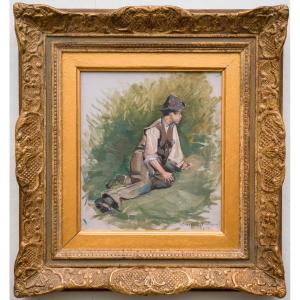
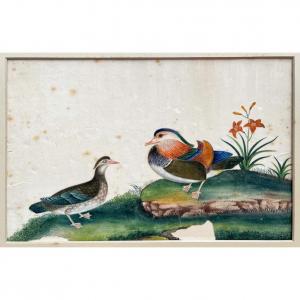

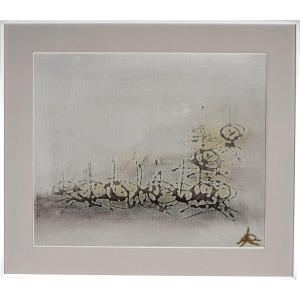


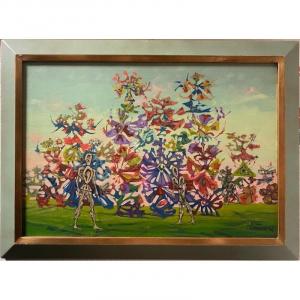
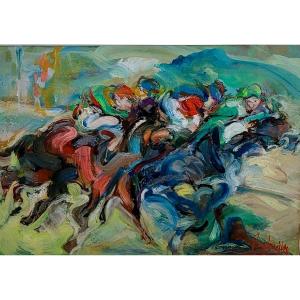




 Le Magazine de PROANTIC
Le Magazine de PROANTIC TRÉSORS Magazine
TRÉSORS Magazine Rivista Artiquariato
Rivista Artiquariato
